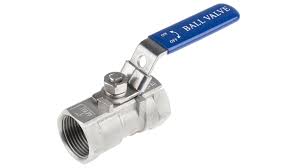MATERIAL SPECIFICATIONS – BALL VALVES

Body Chrome Plated Brass
Seat PTFE
Pressure 16 BAR
Temperature 0°C to 80°C
Actuation Aluminium Lever
non slam check valve
ansi 150 pressure rating
Understanding the Importance of Material Specifications
The materials used in the construction of ball valves are crucial in determining their performance, durability, and suitability for specific applications. Material specifications play a vital role in ensuring the reliability and longevity of ball valves, making them an essential consideration for industrial applications, process automation, and fluid control systems.
Key Material Specifications for Ball Valves
Body and Trim Materials
The body and trim materials of a ball valve are responsible for its structural integrity, corrosion resistance, and ability to withstand high pressures and temperatures. Common materials used in ball valve construction include stainless steel, carbon steel, brass, and aluminum.
Sealing Materials
The sealing materials used in ball valves, such as the seat and packing, are crucial for providing a tight and reliable seal. Common sealing materials include PTFE (Polytetrafluoroethylene), PEEK (Polyetheretherketone), and elastomers like Viton and Nitrile.
Actuation Materials
The actuation materials, such as the stem and handle, are responsible for the smooth and efficient operation of the ball valve. These components are often made from stainless steel, aluminum, or carbon steel, depending on the specific application requirements.
Factors to Consider When Selecting Ball Valve Materials
When selecting the appropriate materials for ball valves, it is essential to consider factors such as:
- Operating Conditions: The temperature, pressure, and fluid compatibility requirements of the application.
- Corrosion Resistance: The ability of the materials to withstand chemical and environmental corrosion.
- Mechanical Properties: The strength, durability, and wear resistance of the materials.
- Regulatory Compliance: Ensuring that the materials meet industry standards and regulations.
Conclusion
Appropriate material specifications for ball valves are crucial in ensuring their optimal performance, reliability, and longevity across a wide range of industrial applications, process automation, and fluid control systems. By carefully considering the operating conditions, corrosion resistance, and mechanical properties of the materials, engineers and designers can select the most suitable ball valves for their specific requirements.